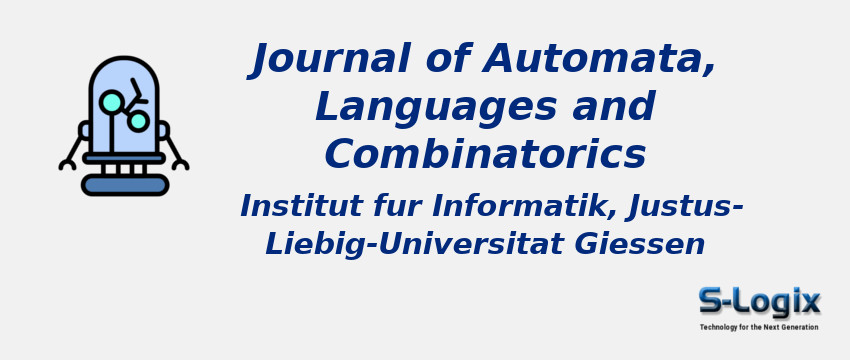Journal Home: Journal Homepage
Editor-in-Chief: Francine Blanchet-Sadri
Print ISSN: 1430189X
Electronic ISSN: 25673785
Abstracting and Indexing: Scopus
Imapct Factor :
Subject Area and Category: Computer Science, Computational Theory and Mathematics, Mathematics, Discrete Mathematics and Combinatorics
Publication Frequency:
H Index: 8
Q1:
Q2:
Q3: Computational Theory and Mathematics
Q4:
Cite Score: 1.4
SNIP: 1.514
Journal Rank(SJR): 0.265
Latest Articles: Latest Articles in Journal of Automata, Languages and Combinatorics
Guidelines for Authors: Journal of Automata, Languages and Combinatorics Author Guidelines
Paper Submissions: Paper Submissions in Journal of Automata, Languages and Combinatorics
Publisher: Institut fur Informatik, Justus-Liebig-Universitat Giessen
Country: Germany
